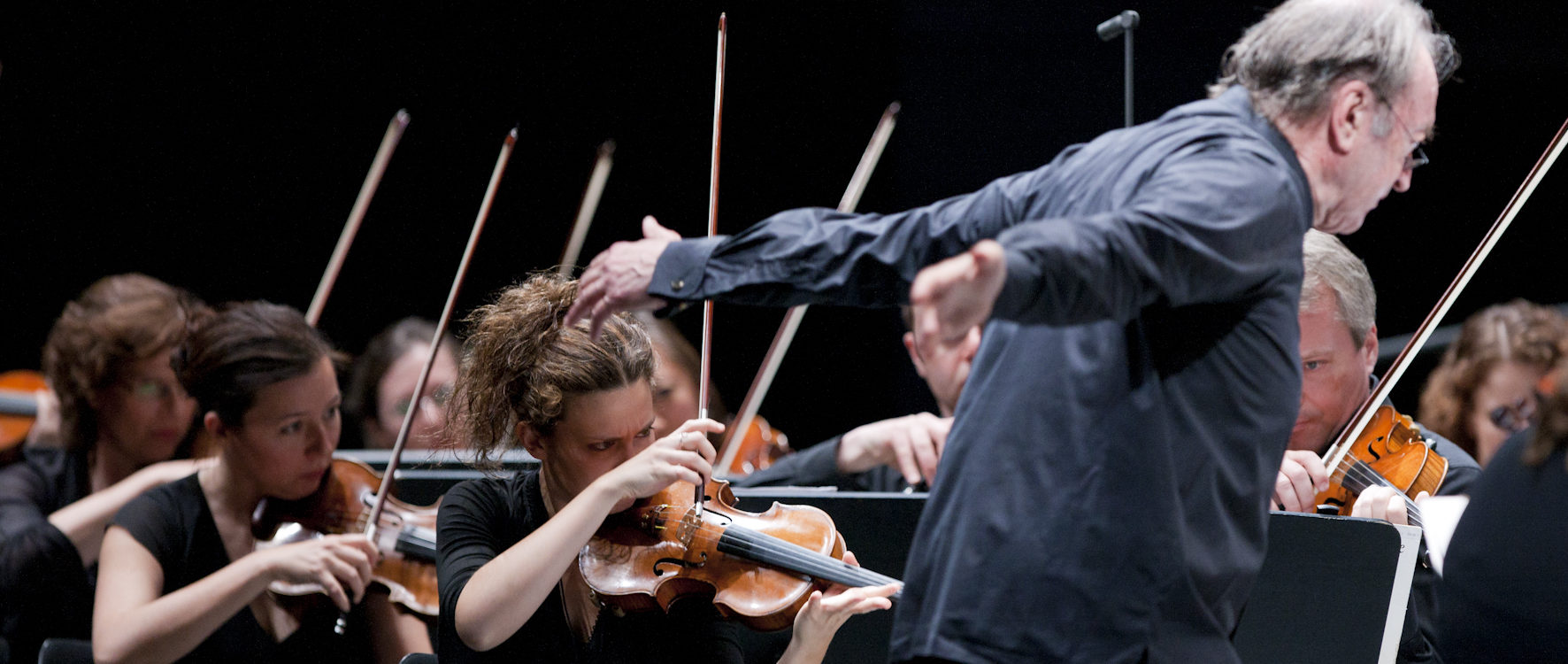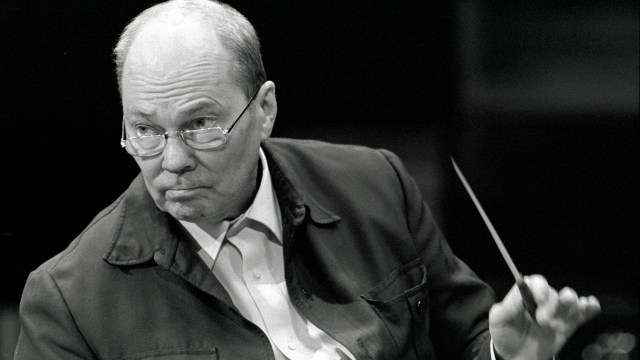The 1980’s and 1990’s
Claudio Abbado
Shortly after the launch concert – which generated sufficient financial support to give the Orchestra at least a chance to get off the ground – June Megennis joined as General Manager, taking over the reins from Victoria Readman after the COE’s first ever professional engagement at the International Rossini Festival in Pesaro, and continuing to lead it on its momentous journey for the next 25 years. At the end of September 1981 the final phase in the launch of the Orchestra took place at the yet-to-be-officially-opened Barbican Hall in London, when another fund-raising private concert was performed to a packed audience.
As the Orchestra began to make its presence felt throughout Europe it undertook its first major European tour with Claudio Abbado in the autumn of 1982. Visiting many major European cities and winning outstanding critical acclaim, it was with Claudio Abbado that the COE had its greatest success throughout the 1980’s, touring not merely around Europe but also in Japan and America, and winning a host of recording awards including its first two Gramophone Records of the Year for the Rossini opera Viaggio a Reims and a Schubert symphony cycle. This was a period of great development for the Orchestra with extraordinary friendships being formed not merely with Alexander Schneider, one of the most enthusiastic and committed supporters of the COE until the end of his life in the early 1990’s, but also Sandor Vegh who had been an inspiration to many of the string players both in Salzburg and at Prussia Cove. It was also in the mid 1980’s that the COE undertook its first projects with Sir Georg Solti, culminating in award-winning performances and recordings of Mozart’s late symphonies and his operas Cosi fan tutte and The Marriage of Figaro.

Nikolaus Harnoncourt
Due to Claudio’s position as General Music Director in Vienna from the early 1980’s, much of the COE’s work took place in that city, and it was there in 1986 that the Orchestra first performed with Nikolaus Harnoncourt in a concert at the Konzerthaus with the soloist Gidon Kremer. We were not to know it at the time, but that concert was the beginning of an especially close relationship with Nikolaus Harnoncourt which over the 1990’s became the bedrock of much of the COE’s work and which continued until Nikolaus passed away in March 2016.
It was in 1987 that Nikolaus first invited the Orchestra to join him at the Styriarte Festival in Graz, his home town, and it was in residence there every year until Nikolaus passed away in March 2016, undertaking a series of major projects, many of which were recorded on the Teldec label to international acclaim. Most noteworthy, without doubt, was the cycle of Beethoven symphonies performed and recorded in Graz over 1990 and 1991 and released by Teldec in 1992, winning every major recording award in the world and selling over one million copies. For many critics and international audiences these performances were ground-breaking in their style and approach, and were repeated at the Salzburg Festival and at Carnegie Hall in New York, on both occasions to standing ovations. As well as the significant recordings with Nikolaus Harnoncourt of Beethoven orchestral works including the piano concertos, overtures and Fidelio, he also went on to conduct the COE in performances and recordings of works by Haydn, Mozart, Schubert, Mendelssohn, Schumann, Dvorak and Bartok, many of which have won international awards.

Paavo Berglund
During the 1990’s, another major influence entered the COE’s life in the form of Paavo Berglund with whom numerous concerts had been given in earlier years, and for whom the Orchestra developed a special affection. Paavo, with his Finnish background, introduced the Orchestra to Sibelius and was sufficiently inspired by his collaboration with the COE to undertake a Sibelius symphony cycle which was played at the Helsinki and Edinburgh International Festivals. The cycle was recorded and released on the Finlandia label, and again won several international prizes. In 2022, we released a DVD and Blu-Ray set of the recording of the Sibelius Symphonies performed at the Helsinki Festival in 1998. The Orchestra’s then principal oboe Dougie Boyd, who instigated this project, tells the story of these recordings on the COE podcast. Apart from the great success the Orchestra had with the Sibelius symphonies with Paavo, they also explored the symphonies of Dvorak and Brahms together, resulting in a Brahms symphony cycle performed throughout Europe in the late 1990’s which was then recorded and released on the Ondine label in 2001.